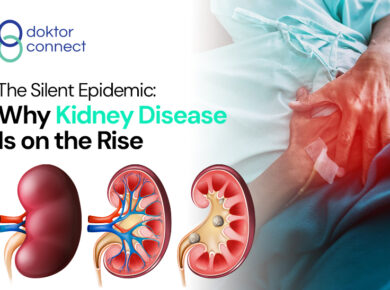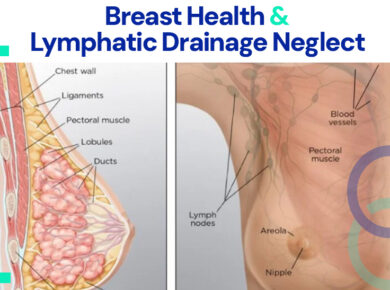Halitosis is the medical term for bad breath. It describes an unpleasant odor in the breath detectable by other people when you speak or breathe.
It is a common condition, in some countries, as many as half of the population have problems with their breath.
So what causes Bad breath (Halitosis)?
The mouth is home to hundreds of bacteria, these bugs digest protein and as they do so, several unpleasant odors arise.
Halitosis is a subjective diagnosis and a complete physical examination and investigation may also be required. We’ll be talking about how to get rid of it in a jiffy, so read along
A. Crash Dieting/ Fasting or Protein Only Diet
After a few hours of dieting, the body breaks down its fat stores and a chemical called ketone is released. This gives a distinct sweet and sickly smelly breath
B. Bad breath (Halitosis) from the Mouth:
- Bad morning mouth– Saliva plays a big role in eliminating bad breath. During sleep, the flow of saliva is reduced and the tongue and cheeks don’t move much. This causes food residue to remain stagnant, dead cells accumulate and get acted upon by bacteria, and causes bad breath (halitosis)
- Dry mouth (xerostomia)– Can be due to dehydration i.e inadequate water intake, a side effect of some medicines e.g tricyclic antidepressants
- Mouth infections e.g dental abscess
C. Bad breath Caused by Germs:
- Food stuck between the teeth– Normal teeth brushing may not clear food stuck in between teeth. This then rots and these germs grow
- The coating on the back of the tongue- People whose tongues are deeply grooved have more potential to accumulate white coating than those with smoother tongue surfaces. These coating deprive the area of oxygen and the bacteria that cause bad breath can flourish in an environment without oxygen
- Fixed dentures: Dentures are an important cause of bad breath (halitosis) especially if worn overnight.
- Plaque, Calculus, and Gum disease: Dental plaque is a soft whitish deposit that forms on the surface of teeth when bacteria combine with food and saliva.
- Tonsil stones (Tonsilloliths)– These are clusters of calcified material that form around the tonsils
D. Bad Breath From The Nose and Throat
- Sinus infection
- Throat infections e.g Tonsillitis
- Foreign body in the nose
E. From the stomach and gut:
- Acid reflux
- Helicobacter Pylori infection– the bug which causes peptic ulcer has been found in up to 87% of patients with bad breath (halitosis)
F. Medical Conditions such as :
1. Chest Infections
2. Diabetes (high blood sugar)
5. Fish Odor Syndrome (trimethylaminuria) – A rare disease where there is an excess of a chemical called trimethylamine that causes a pungent odor similar to that of rotten fish
G. Psychological (Pseudo-halitosis)
A condition where people falsely believe they have bad breath. A psychologist may be indicated here.
H. Other Causes:
- Smoking Cigarette
- Drinking Alcohol
- Artificially induced: after eating an aromatic meal e.g garlic, onions, high spiced meal
- Drugs: Disulfiram, Solvent misuse, etc
How to Prevent and Get Rid of Bad Breath (Halitosis)
- Stay hydrated: Drink sufficient fluid
- Antibacterial mouthwashes such as chlorhexidine gluconate can be helpful for persistent halitosis (this can cause reversible discoloration of the tongue and this effect can be minimized by brushing teeth first)

3. Practice Good Oral Hygiene:
- Clean daily between teeth to below the gum line before brushing
- For small spaces, use dental floss or tape
- In larger spaces, use single-tufted brushes
- For those with orthodontic appliances e.g braces, use kit suggested by the dentist

4. Brush Teeth Daily
- Brush teeth and gum line with a fluoride-containing toothpaste last thing at night and at least on one other occasion during the day for at least two minutes
- Use a manual or powered toothbrush with a small head and medium texture
- Spit out after brushing and do not rinse, to maintain fluoride concentration
5. Regular Tongue Cleaning: Perform daily tongue cleaning particularly the posterior part of the upper tongue, ideally before bedtime via a tongue cleaner or scraper preferably
6. Take sugar-free sweets or chewing gum to increase saliva flow and freshen the breath
7. Dentures should be left out at night and cleansed
8. Stop smoking
9. Limit excess alcohol intake
10. Visit a dentist at least twice a year: Plaques and other underlying causes can be identified and then treated and a referral if indicated can be done. Get access to a dentist visit by subscribing to a Doktorconnect Annual or Premium Plan
11. If caused by Helicobacter Pylori infection, there are medications available to eradicate it, so remember, if you have any concerns you can speak with a doctor on the doktorconnect app to get started




